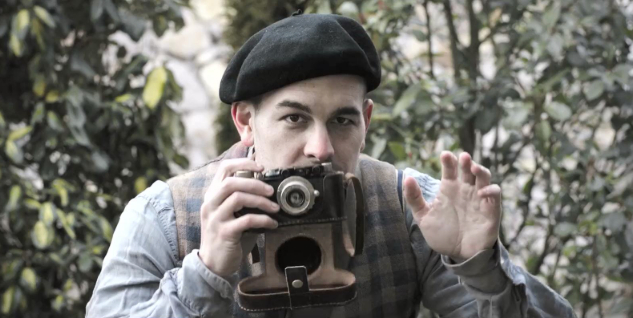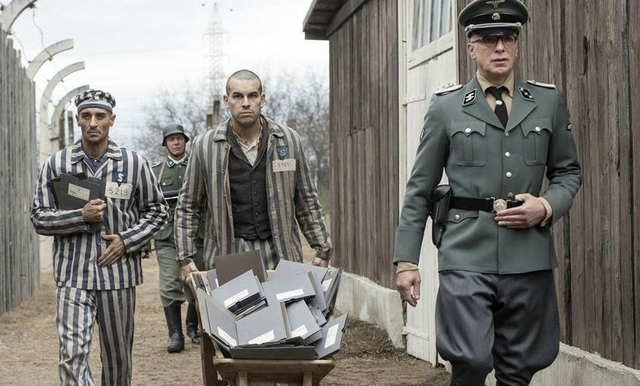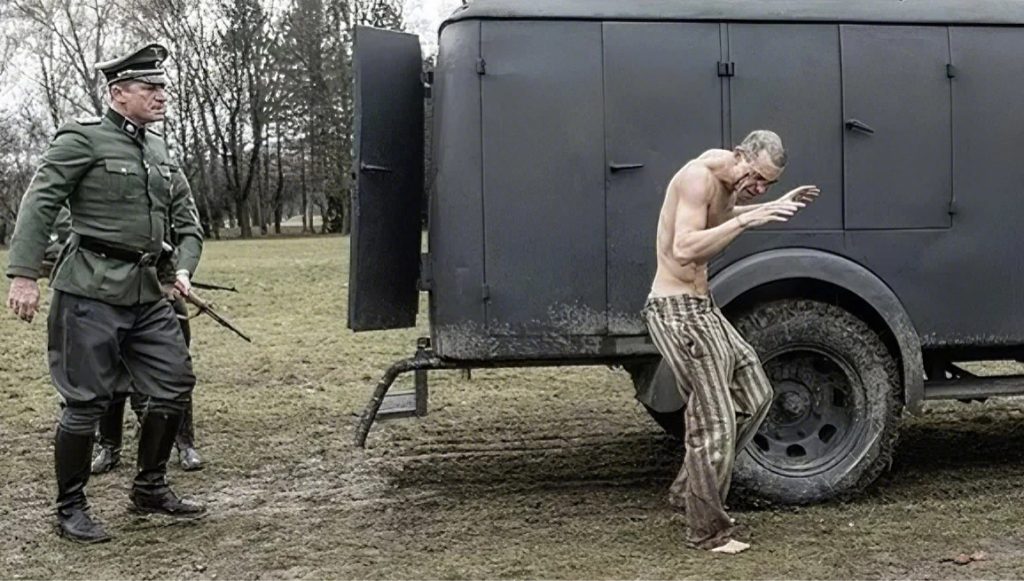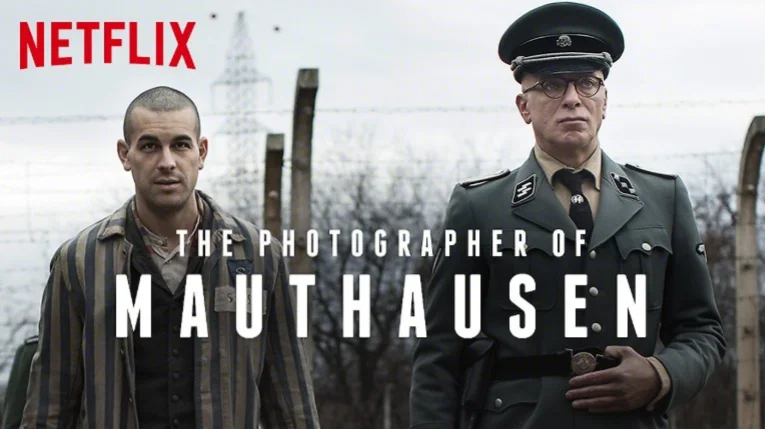The Photographer of Mauthausen (2018)
Set amidst one of history’s most horrific backdrops, The Photographer of Mauthausen (El fotógrafo de Mauthausen) is not just a war drama—it is an intimate, harrowing portrait of resistance through the unlikeliest of weapons: a camera. Directed by Mar Targarona and anchored by a transformative performance from Mario Casas, the film dramatizes the true story of Francisco Boix, a Spanish Civil War exile imprisoned in the Nazi concentration camp of Mauthausen, who risked everything to preserve photographic proof of atrocities committed within its walls.
Far from a typical Holocaust film that overwhelms with scale, The Photographer of Mauthausen narrows its scope to illuminate the personal. It asks: in a place designed to erase identity, how does one preserve truth? The answer lies in Boix’s quiet defiance—and in the film’s stark, unflinching visual narrative.
A Prisoner, A Camera, A Mission
Boix, portrayed with remarkable physical and emotional depth by Mario Casas, is not the traditional hero. A former Republican fighter turned political prisoner, he begins the film bitter, beaten, and broken. But when he is assigned to work in the camp’s photographic laboratory, he finds purpose in subversion. As he realizes that the Nazis are documenting their crimes while hiding them from the world, Boix begins smuggling negatives—each image a potential act of justice.
What unfolds is less a thriller than a meticulous, suffocating portrait of subversion under constant surveillance. The stakes are immense: a roll of undeveloped film could mean execution for dozens. The film captures this tension not with shootouts or grand escapes, but with whispers, glances, and trembling hands under a tray of chemicals.

Mario Casas: A Transformation Both Physical and Moral
Mario Casas is virtually unrecognizable here, shedding his heartthrob image for a gaunt, haunted physicality that matches the film’s grim setting. But beyond the weight loss, it’s his internalization of Boix’s moral torment that defines the performance. His defiance is not loud or defiant in the traditional sense—it’s pragmatic, wounded, and painfully human. Casas plays Boix as a man who doesn’t see himself as a hero, but who becomes one because silence would be a greater crime.
The supporting cast—largely composed of fellow Spanish prisoners and stoic Nazi officers—complement Casas without overshadowing him. Their presence reinforces the idea that survival was not just individual, but collective; a quiet orchestra of resistance playing beneath the noise of brutality.

Direction and Aesthetic: A World Drained of Color and Hope
Mar Targarona directs with restraint and respect. The production design, bathed in grays and muted browns, recreates the prison with oppressive realism. The Mauthausen camp is not sensationalized—it is presented as what it was: a factory of death, bureaucracy, and silence. The film’s pacing is deliberate, sometimes almost painfully slow, but that slowness mirrors the endurance required to survive such an environment, day after day.
Cinematographer Aitor Mantxola bathes the film in cold light and shadow—appropriately echoing the tonal austerity of the photographs at the heart of the narrative. The visual metaphor is clear: light, however faint, still exposes truth.

Truth as Resistance
Where many Holocaust films focus on survival, The Photographer of Mauthausen goes a step further. It’s about testimony. About the power of a single image to resist propaganda, to outlive its captors, and to confront denial with proof. Boix’s act is not just rebellion—it is record. And that makes the film not only historically essential, but politically urgent in a time when truth itself is often manipulated.
The final scenes, interspersed with actual photographs from the camp, drive this home with sobering power. They are not sentimental—they are evidence. The camera becomes a weapon not of violence, but of memory.
Final Verdict: Quiet, Unforgettable, Necessary
The Photographer of Mauthausen is not a loud film, but its silence resounds. Through restrained storytelling, immersive realism, and a career-defining performance from Mario Casas, it reminds us that history is not just what happened—it’s what was preserved. And in the darkest corners of humanity, it is sometimes the smallest, most fragile acts—like hiding a roll of film—that shape how we remember.

In bearing witness to this story, the film becomes part of that resistance. And it asks us, quietly but clearly: What would you risk to expose the truth?
⭐️ RATING: 9/10
Genre: Historical Drama / War | Director: Mar Targarona | Starring: Mario Casas, Alain Hernández, Macarena Gómez
Studio: Netflix / Rodar y Rodar | Release: October 2018
#ThePhotographerOfMauthausen #MarioCasas #HolocaustCinema #SpanishCinema #TrueStory #HistoricalFilm #ResistanceThroughTruth #NetflixOriginal
